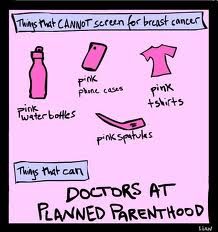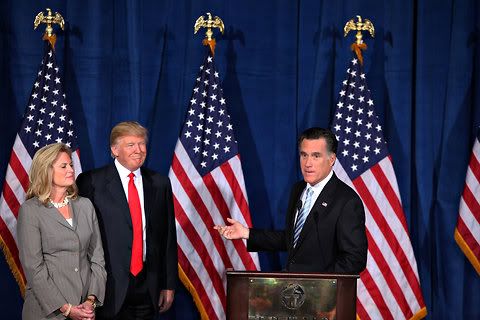Cross posted from The Stars Hollow Gazette
Nothing surprising about the revelation in today’s New York Times that the SEC has failed to get tough with the big banks but it does highlight how Occupy Wall St. has change this conversation in the traditional media that is now taking a more critical look at what is wrong with the economy and why. Despite all the whining from the agency that it doesn’t have the resources or the tools, when in fact it does but has refused to use them against the biggest and repeat offenders. The SEC has repeatedly granted waivers to the laws and regulations that stop fraud:
JPMorganChase, for example, has settled six fraud cases in the last 13 years, including one with a $228 million settlement last summer, but it has obtained at least 22 waivers, in part by arguing that it has “a strong record of compliance with securities laws.” Bank of America and Merrill Lynch, which merged in 2009, have settled 15 fraud cases and received at least 39 waivers.
Only about a dozen companies – Dell, General Electric and United Rentals among them – have felt the full force of the law after issuing misleading information about their businesses. Citigroup was the only major Wall Street bank among them. In 11 years, it settled six fraud cases and received 25 waivers before it lost most of its privileges in 2010.
The SEC also does keep an organized data base of the waivers it granted, so in its investigation the NYT’s had do some digging but found some very telling facts about the SEC’s failures to protect investors while protecting the big banks from lawsuits and prosecution:
JPMorganChase is among the big Wall Street firms that have been granted multiple waivers with nearly every settlement of S.E.C. fraud charges. Last July, it agreed to pay $228 million to settle civil and criminal charges that it cheated cities and towns by rigging bids with other Wall Street firms to invest the money raised by several municipalities for capital projects.
JPMorgan received three waivers related to that case for privileges that it otherwise would have lost. But the S.E.C. said the company’s fraudulent actions didn’t involve misleading investors about JPMorgan’s business. [..]
Despite six securities fraud settlements in 13 years, JPMorgan rarely if ever lost any special privileges. It has been awarded at least 22 waivers since 2003, with most of its S.E.C. settlements generating two or more. In seeking the reprieves, lawyers for JPMorgan stated in letters to the S.E.C. that it should grant a waiver because the company has “a strong record of compliance with the securities laws.”
JPMorgan isn’t the only big bank that has received a pass on fraud from the SEC, Bank of America has been a recipient of favored status:
In 2009, the S.E.C. was negotiating with Bank of America over charges that it had failed to disclose to shareholders that billions of dollars in bonuses were being paid to Merrill Lynch executives just as Bank of America was bailing out the firm.
Because the S.E.C. charges involved fraudulent statements by both Bank of America and Merrill Lynch about their financial status, the merged company was in danger of losing its special privileges for both offerings and forecasts. [..]
It settled the case by agreeing to a $150 million payment. The S.E.C., however, decided not to charge the bank with fraud, which could have endangered the bank’s special status. Instead, the S.E.C. charged Bank of America with violating disclosure rules for shareholder materials and proxies, and Bank of America kept its privileges.
It took years before the SEC finally took action against Citigroup for its violations of rules and regulations but in 2010. That only happened because Citibank blatantly lied to its investors about the amount of risk it was carrying on its balance sheets. In its disclosure the bank stated that it was only holding $13 billion in risks when in reality it was $50 billion. It settled the case for $75 million but because of the falsification of its financial statement it lost the ability to insulate itself from lawsuits over mistaken predictions about its business and had to wait weeks for the SEC’s approvals to make itself eligible to sell stocks, bonds and other securities to the public. Prior to those sanctions Citibank had settled six fraud cases and received 25 waivers. Meanwhile JPMorgan, Gold Sachs and others have avoided sanctions and continue their fraudulent practices.
Yves Smith at naked capitalism in pointing out the significance of this article makes this observation:
What the article does not make quite clear is the SEC rationale for this double standard. I’d hazard that it’s that big financial players are often in the market raising funds, and restricting their access is, well, just a bit too mean since they are money junkies. Just look how hard it was for Citi when it fell out of the SEC’s most favored nations status and lost its ability to use so-called “shelf registrations” to sell stock and bonds:
And the companies continue to use rules that let them instantly raise money publicly, without waiting weeks for government approvals. Without the waivers, the companies could not move as quickly as rivals that had not settled fraud charges to sell stocks or bonds when market conditions were most favorable.
OMG, if you break the law, you might be put at a competitive disadvantage! Can’t have that, now can we?
She concludes:
[..] As we have said, one of basic rules of regulating is to make sure the regulated know you are not cowed by them. When I was a young person working on Wall Street, investment banks were afraid of the SEC. By contrast, this article reveals, as many have suspected, that regulators have plenty of tools to bring banks to heel. They choose not to use them.
The SEC does have a defense of sorts, which is (as we have recounted) that Congress has cut off funding when it merely tried to be tough in defending retail investors from abuses under Arthur Levitt in the 1990s. The passivity of the SEC is a symptom of elite corruption. A reform-minded President could choose to cross swords with Congress and defend the agency against harassment for tough minded enforcement. But that would be in a parallel universe where the banks were not in charge.
It was the Occupy Wall St. movement and a handful of state attorneys general who have changed the conversation from protecting the 1% to investigating them and looking at their practices and the agencies that regulate them with a more critical eye.



 Since of the Susan G. Komen for the Cure charity’s decision to eliminate funding to Planned Parenthood for breast cancer screenings, the Komen foundation has come under not just criticism for abandoning many women’s only option for breast cancer screening but it has brought to light some very ugly truths about the organization. The most critical one is that its pink ribbon campaign has done more harm than good. As
Since of the Susan G. Komen for the Cure charity’s decision to eliminate funding to Planned Parenthood for breast cancer screenings, the Komen foundation has come under not just criticism for abandoning many women’s only option for breast cancer screening but it has brought to light some very ugly truths about the organization. The most critical one is that its pink ribbon campaign has done more harm than good. As 

